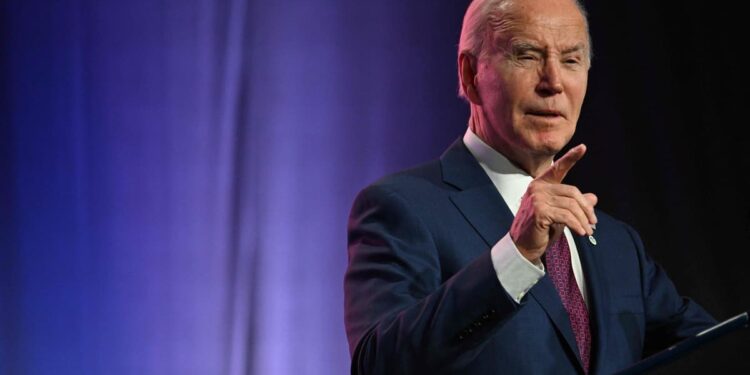Taxation of the richest, higher taxation of big businesses: the Democratic administration’s proposed budget for 2025 resembles an electoral campaign program while having little chance of being adopted given the division that reigns in the American Congress.
• Read also: Trump wants to impose higher tariffs on the United States
• Read also: Putin pins his hopes on a Trump victory
The plans of President Joe Biden, who, in eight months during the presidential election should once again oppose future Republican candidate Donald Trump, aim to free up resources to finance investments and help the middle class with housing.
The main measures
The draft budget takes up one of Joe Biden’s main proposals since the start of his mandate, but which he failed to get adopted in Congress: to make billionaires and multinationals “pay their fair share” of taxes.
This should make it possible to give a boost to the middle classes and less well-off families in terms of health costs, childcare, student debt, etc.
The budget also provides “2 million additional affordable housing units (…) for tenants, for owners, for families and people in the middle class,” Joe Biden underlined Monday morning.
“Every family deserves a place (…) where their American dreams come true,” he added.
Funds are also planned to strengthen border security and the immigration system, a call to the Republicans.
Investments are also planned to strengthen the health system, but also to face climate change while protecting natural resources.
“While President Biden is fighting for the middle class and working families, congressional Republicans are fighting for the wealthy and special interests,” Olivia Dalton, a House spokeswoman, told reporters Monday. White.
What is planned to reduce the deficit?
The White House says this budget proposal “reduces the deficit by $3 trillion over the next 10 years.”
To do this, the administration wants to fight fraud, and Joe Biden said he wanted to reduce the deficit “by ensuring that the rich and big businesses finally start paying their fair share.”
“We have reduced the federal deficit (…) by $3,000 billion and an additional $3,000 billion over the next decade,” he said.
During the 2020 financial year, which ended September 30, 2020, and which corresponded to the end of Donald Trump’s mandate, the deficit had exceeded $3,000 billion, a record, due to massive aid linked to Covid-19 .
In fiscal year 2023, ending September 30, it was $1.695 trillion.
Can it be adopted?
So that this budget can be implemented from 1er October 2024, Joe Biden should have a Democratic majority in both houses of Congress.
This is the case in the Senate, but not in the House of Representatives. The latter has become the scene of partisan battles between Democrats and Republicans.
“House Republicans reject Biden’s misguided budget plan,” House Republican Rep. Mike Johnson said in a statement, calling it “a road map to accelerate America’s decline.” .
These elected officials close to Donald Trump still oppose the 2024 budget, which should have been adopted in September. One part has only just been released, more than five months behind the usual schedule, but the other part is still the subject of fierce debate.



